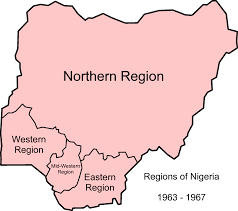
By Olakunle Agboola – Nigeria, a nation endowed with vast natural resources and untapped land, continues to grapple with significant challenges, especially in the northern regions, despite its mineral wealth and expansive landscapes.
Nigeria’s Abundant Resources and the State of Poverty
Nigeria is a country rich in mineral deposits, vast arable land, and a thriving young population. Yet, despite these advantages, the country faces widespread poverty, particularly in the northern regions, which are home to over 100 million people. Nigeria is a top producer of oil and has access to significant mineral resources such as gold, coal, tin, and limestone, yet the nation’s potential remains underutilized. This paradox is often cited as one of the key reasons why many Nigerians, particularly those in the north, continue to live in abject poverty.
Northern Nigeria: A Region of Contradictions
Northern Nigeria, which accounts for almost half of Nigeria’s population, remains one of the poorest regions in the country. Despite having large deposits of minerals and expansive land suitable for agriculture, much of the region remains underdeveloped. This disparity can be traced to a combination of historical, political, and socio-economic factors that hinder the region’s growth and prosperity.
Northern Nigeria has potential for vast agricultural output, especially in crops such as millet, sorghum, and groundnuts, along with access to mineral resources. However, it suffers from inadequate infrastructure, lack of access to education, poor healthcare, and insufficient investment in local economies. The results are high poverty rates, rising unemployment, and limited opportunities for youth. This situation is compounded by ongoing security challenges, including insurgency and banditry, which further disrupt economic activities and deter investment.
The Federal System: A Double-Edged Sword
One of the central questions in understanding Nigeria’s developmental struggles is the federal system of governance. Nigeria practices a federal system that divides the country into 36 states and one Federal Capital Territory (FCT), with the federal government holding significant control over resources.
Federalism allows for local governance but also centralizes the allocation of resources and decision-making, which may inadvertently stifle regional development. In the case of northern Nigeria, many argue that the federal government’s policies have failed to prioritize the unique needs of the region. Additionally, the revenue-sharing formula, which allocates a significant portion of the national budget to the federal government, leaves state governments with limited control over resources. As a result, northern states may not have the autonomy they need to manage and develop their local resources effectively.
Critics of Nigeria’s federal system argue that this centralization prevents states from harnessing their resources to address regional poverty and stimulate economic growth. If northern states had greater control over their natural resources and economic activities, they could tailor policies to their specific needs and capitalize on their advantages, including mineral extraction, agriculture, and tourism.
Leadership Crisis: A Barrier to Progress
Another major factor contributing to Nigeria’s underdevelopment is the leadership crisis that has plagued the nation for decades. Despite having numerous educated and capable individuals, leadership positions are often filled by individuals who prioritize personal gain over national development. Corruption, mismanagement, and a lack of visionary leadership have kept the country from fully utilizing its vast resources.
In northern Nigeria, the challenge is particularly acute. Political leaders and elites in the region have often failed to provide the kind of transformative leadership needed to revitalize the local economy, build critical infrastructure, and improve social services. Without visionary leaders who are committed to sustainable development, the region remains locked in a cycle of poverty.
The Path to Transformation: Unlocking Nigeria’s Potential
Nigeria has no business being poor. With the right leadership and governance structures, the country could transform its vast natural wealth into economic prosperity.
Decentralized Resource Management
A more decentralized approach to resource management could allow states, particularly those in the north, to take control of their mineral resources, agricultural output, and land. States should be empowered to develop their economies based on their unique resources and needs. This decentralization would also allow for more targeted investment in infrastructure, education, and healthcare.
Leadership Development and Accountability
Nigeria must prioritize the development of leaders who are committed to the nation’s collective prosperity. This requires both improving the quality of leadership and ensuring that leaders are held accountable for their actions. By promoting integrity, transparency, and visionary leadership, Nigeria could begin to harness its resources effectively and raise the standard of living for its citizens.
Investment in Infrastructure and Education
To transform its economy, Nigeria must invest heavily in infrastructure, particularly in northern regions. Developing roads, electricity, and water systems will attract investment, stimulate local economies, and improve living standards. Additionally, a focus on education and vocational training will empower young people with the skills they need to thrive in a rapidly changing global economy.
Sustainable Development and Resource Management
Effective resource management should prioritize sustainability. Nigeria’s mineral wealth should be extracted in a way that ensures long-term environmental and economic stability. Similarly, agricultural policies should be geared toward promoting sustainable practices that protect the environment and provide lasting economic benefits.
A Nation on the Brink of Transformation
Nigeria’s current state, especially in northern regions, is not an inevitability. The country has abundant resources, a large and youthful population, and a wealth of untapped potential. By rethinking its federal system, empowering local leadership, and investing in sustainable development, Nigeria can overcome its challenges and ensure a better future for its citizens.
The right leadership and governance reforms can enable Nigeria to convert its untapped mineral deposits, vast land, and human capital into a thriving economy. There is no reason why Nigerians should travel abroad in search of better livelihoods when the resources to build a prosperous nation lie within the country itself. The key to unlocking Nigeria’s potential lies in harnessing these resources and cultivating a leadership that is both visionary and accountable.










